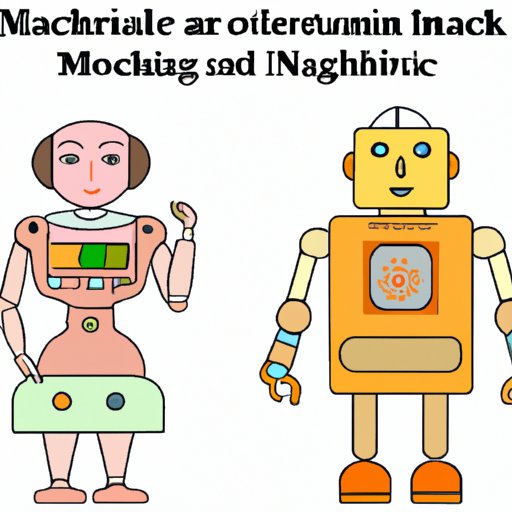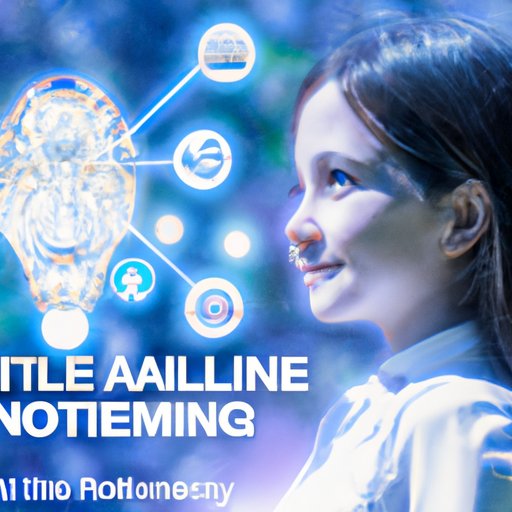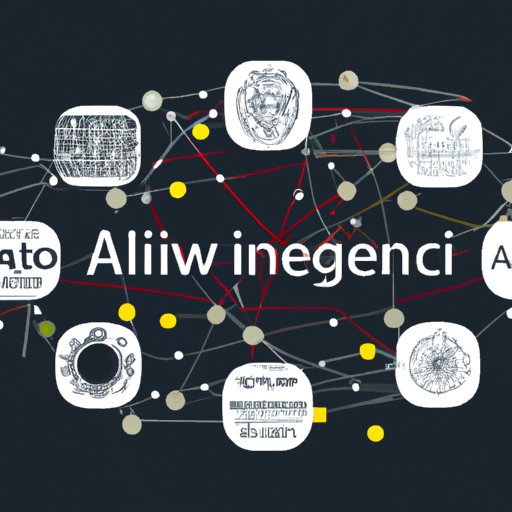Introduction
Artificial Intelligence (AI) is a rapidly evolving field that has the potential to dramatically enhance the way humans interact with their environment. AI technologies are being used in a variety of applications, from healthcare to transportation, and have revolutionized many industries. But what exactly is AI, and how does it relate to human intelligence?
At its core, AI is defined as the science of creating intelligent machines that can think, learn and act like humans. AI systems are designed to be able to process large amounts of data, identify patterns, and make decisions quickly and accurately. AI is not a single technology, but rather an umbrella term for a range of technologies, including machine learning, natural language processing, expert systems, deep learning, and neural networks.
Types of Artificial Intelligence and Their Impact on Society
Machine learning is a type of AI that enables computers to recognize patterns in data sets and make predictions based on those patterns. For example, a machine learning algorithm could be used to detect fraud in financial transactions or to predict customer demand for products. Natural language processing (NLP) is another type of AI technology that enables computers to understand human language and respond accordingly. NLP is used in a variety of applications, such as virtual assistants, automated customer service, and voice recognition systems.
Expert systems are AI programs that are designed to replicate the behavior of experts in a particular field. These systems are used to automate complex tasks that would otherwise require significant human involvement, such as medical diagnosis or financial planning. Finally, deep learning and neural networks are advanced AI techniques that enable computers to make decisions based on large volumes of data.

How Intelligent Machines Learn and Adapt
AI algorithms are used to teach computers how to recognize patterns and make decisions based on those patterns. Algorithms are sets of instructions that tell the computer what to do when it encounters certain data. The more data the algorithm has access to, the more accurate its predictions will be. Machine learning algorithms are constantly being refined and improved, allowing them to become increasingly accurate over time.
In addition to algorithms, AI systems also use deep learning and neural networks to learn from data. Deep learning involves training artificial neural networks to recognize patterns and make decisions. These networks are composed of layers of neurons, each of which is connected to a number of other neurons. As the network processes data, it adjusts the weights of the connections between neurons to improve its accuracy. This allows the network to learn from its mistakes and become better at recognizing patterns.

Benefits and Challenges of Artificial Intelligence
The use of AI has numerous potential benefits, such as increased efficiency, improved accuracy, and reduced costs. AI systems can help to automate mundane tasks, freeing up time for humans to focus on higher-level activities. AI can also be used to improve decision making, by providing more accurate and timely insights into complex problems. Furthermore, AI can be used to improve customer service, as well as to create personalized experiences for customers.
However, there are also some potential challenges associated with the use of AI. One of the biggest concerns is privacy and security, as AI systems may be vulnerable to malicious attacks. Additionally, AI systems can be biased if they are not trained on diverse data sets. Finally, AI systems can be expensive to develop and maintain, and may require significant resources to keep them running smoothly.
Conclusion
In conclusion, AI is a rapidly evolving field that has the potential to revolutionize many industries. AI systems use algorithms and deep learning to recognize patterns and make decisions based on those patterns. There are numerous potential benefits associated with the use of AI, such as increased efficiency and improved accuracy. However, there are also some potential challenges, such as privacy and security concerns, bias, and cost. Ultimately, the use of AI is likely to become increasingly widespread in the coming years.
(Note: Is this article not meeting your expectations? Do you have knowledge or insights to share? Unlock new opportunities and expand your reach by joining our authors team. Click Registration to join us and share your expertise with our readers.)
